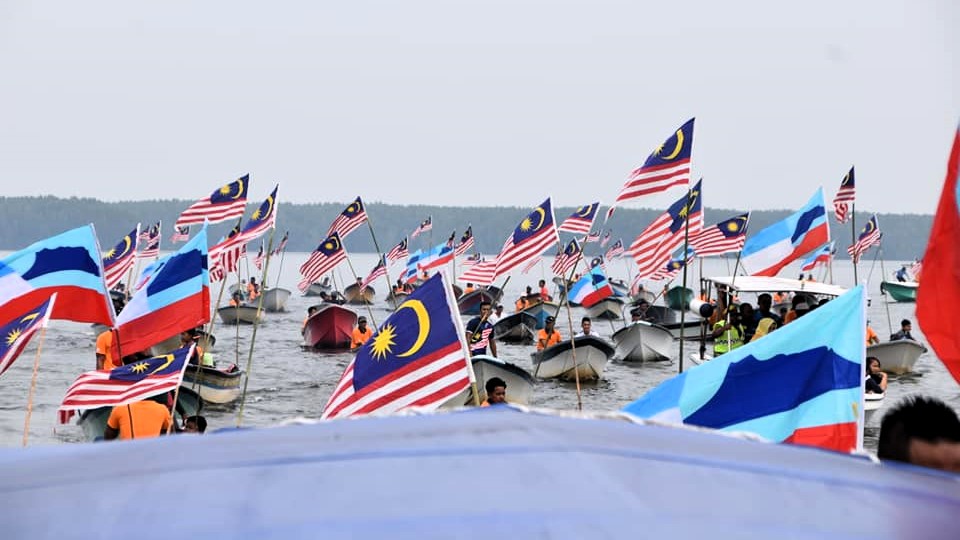SANDAKAN – 2023 began tumultuously for Sabah’s politics but stabilised before the middle of the year when the state passed its anti-hopping law.
The state, known for party-hopping “frog” politicians, opened the year with Sabah Umno chief Datuk Seri Bung Moktar Radin announcing on January 6 that the party’s state chapter would withdraw support for Gabungan Rakyat Sabah (GRS) chairman Datuk Seri Hajiji Noor, who is also Sabah chief minister.
Umno-Barisan Nasional and GRS were state government allies then, and without Umno assemblymen, speculation began as to whether GRS could maintain its numbers to stay in power against a possible Umno-Warisan pact.
However, Sabah Pakatan Harapan (PH), which at the time was the state opposition, emerged as kingmaker – promising support for Hajiji as chief minister until the end of his tenure in 2025.

Sabah PH reportedly said it did this to avoid snap state elections and to ensure political stability for Sabahans. The last state election was in September 2020.
Safe with his numbers in a GRS-PH Plus pact, Hajiji moved quickly to reshuffle the Sabah cabinet in January, ousting all Sabah Umno representatives except for four out of five Umno members who had openly declared their support for him and GRS.
This saw Sabah Umno’s Datuk Shahelmey Yahya replacing Bung Moktar as the Sabah works minister. Several Sabah PH assemblymen landed spots as ministers and deputy ministers in the state cabinet.
Heads of state government-linked companies (GLC), allegedly part of the coup, were also replaced. This included the state government’s investment arm, Qhazanah Sabah Bhd which saw Datuk Yusof Yacob of Umno, who supported GRS, appointed as chairman – replacing fellow party colleague Datuk Seri Salleh Said Keruak.
Sabah DAP chairman Datuk Frankie Poon also landed a position as chairman of Sabah Development Bhd following the development.

Besides heading the GRS coalition that leads the Sabah government, Hajiji is also head of Parti Gagasan Rakyat Sabah (Gagasan Rakyat), which he founded in March this year.
This was to address the fact that he was “partyless” after quitting Bersatu in December 2022. Without a party, this had led to Warisan questioning his eligibility to be chief minister.
Hajiji’s position solidified with 11 Warisan assemblymen jumping ship to GRS – leaving Warisan with just 14 assemblymen and three MPs.
The situation appeared to stabilise after the state passed its anti-hopping law in May 2023.
The later part of this year saw talk of a snap state election resurface. Observers noted that Warisan and Sabah Umno appeared friendly with one another as their representatives have made appearances at each other’s official events and annual delegate conferences this year.
If Warisan and Sabah Umno cooperate in the next state election, Hajiji’s position will, again, be at risk.
However, dissolving the legislative assembly is his prerogative as chief minister, and he has not specified if polls will be held next year, ahead of the full term that ends in October 2025.
While talk of snap state polls simmer beneath, Sabah’s politicians have focused on state rights.
In August, the Dewan Rakyat passed the Inland Revenue Board of Malaysia (Amendment) Bill 2023 for Sabah and Sarawak government representatives to be on the Inland Revenue Board.
The amendment would also allow the representatives to have the full picture of revenue collection in Sabah and Sarawak.
In September 2023, the federal government agreed to finalise the implementation of the 40% federal revenue allocation formula by July 2024.
However, Sabah still has a long way to go as it has yet to get the federal government to give its 40% special grant – which is the federal tax collected from Sabah to be returned to the Sabah government. – December 31, 2023


